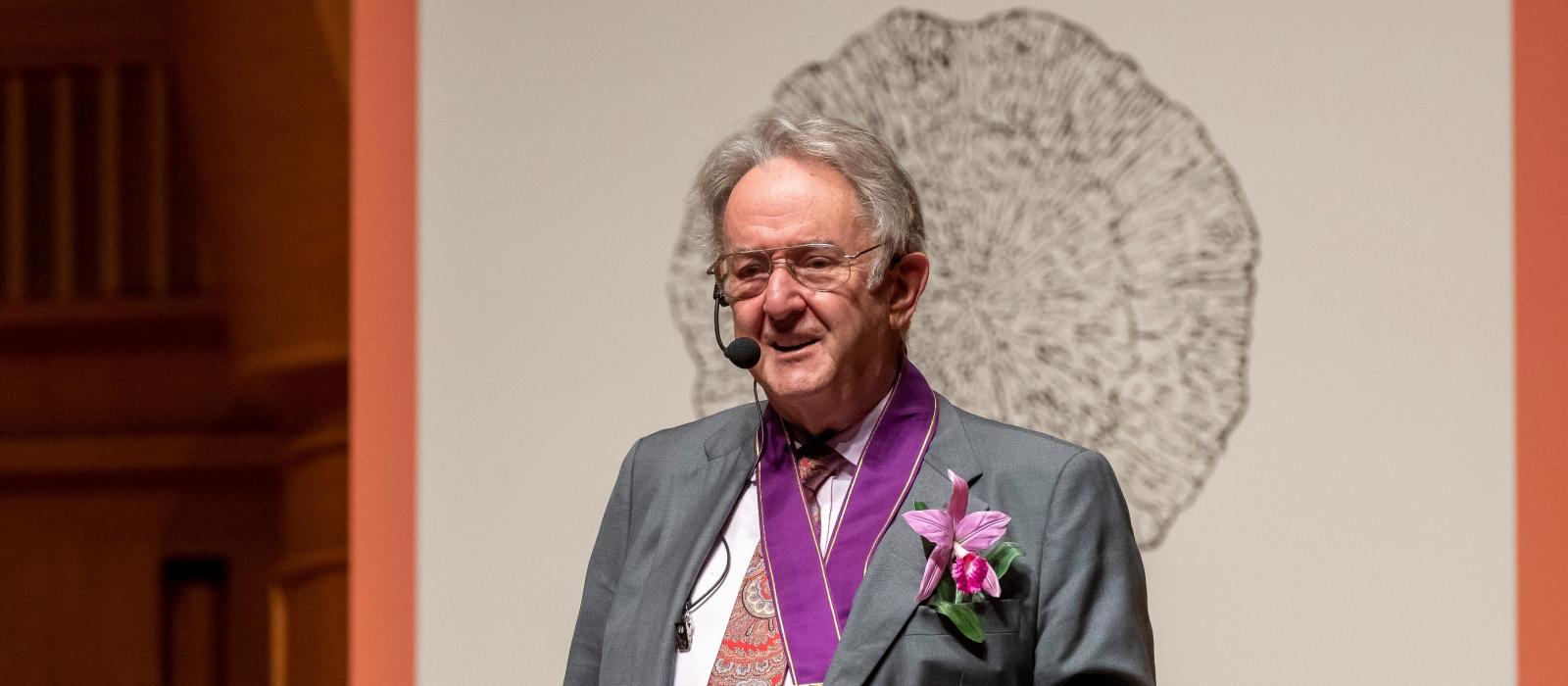Stuart Pimm, Doris Duke Professor of Conservation Ecology, has received the 2019 International Cosmos Prize.
The prize—which carries a $400,000 cash prize and is among the most prestigious honors in the environmental field—recognized Pimm for his research on endangered species and his work to help reverse species’ declines by protecting their shrinking habitats.
Past recipients of the Cosmos Prize include Jane Goodall, E.O. Wilson, Richard Dawkins and Sir David Attenborough.
Pimm received the Cosmos Prize at a ceremony this autumn in Osaka, Japan, where he met with Emperor Naruhito, delivered an invited lecture and took part in an international symposium on biodiversity held in his honor.
“It’s no exaggeration to say that much of what we know today about endangered species and what can be done to reverse their declines is directly attributable to Stuart,” said Toddi Steelman, Stanback Dean of the Nicholas School.
“Over the course of his remarkable career, he’s developed quantifiable methods for estimating extinction rates and identifying global patterns of species and habitat loss. He’s championed the use of big data, geospatial analysis, remote sensing and other tools that have revolutionized how we do conservation and measure its impacts. And he’s pioneered a more strategic approach for investing limited conservation resources and partnering with local communities,” Steelman said. “This is a richly deserved honor.”
The Cosmos Prize has been awarded annually since 1993 to a scholar whose research and achievements promote the prize foundation’s philosophy —“the harmonious co-existence between nature and mankind.”
Pimm has published more than 330 peer-reviewed studies, including seminal works on biodiversity and species loss in the Everglades, the coastal forests of Brazil and the northern Andes.
His work has shed light on the threats facing hundreds of endangered species, from iconic ones such as giant pandas to humble creatures like the Cape Sable seaside swallow, a sentinel species of environmental health in Florida’s Everglades that Pimm has called “a drab-looking scruffy puff of feathers.”
In selecting Pimm as this year’s laureate, the Cosmos Prize jury cited his leadership at Saving Nature, a conservation nonprofit he founded to help protect and restore at-risk biodiversity corridors in environmental hotspots such as Colombia, Brazil and India.
The jury also cited his commitment to fostering future environmental leaders by mentoring students at all levels—doctoral, master’s, undergraduate and even high school -- and giving them hands-on experience as members of his research team.
Pimm previously has been recognized for his contributions to science with the 2010 Tyler Prize for Environmental Achievements and the 2006 Heineken Prize for Environmental Sciences, the other top awards in the environmental field.
“I’m truly humbled to be this year’s Cosmos Prize recipient,” Pimm said. “Even more gratifying is that this honor helps shine a global light on the innovative and high-impact environmental research we do at the Nicholas School and Duke and the excellence of our academic programs.”



